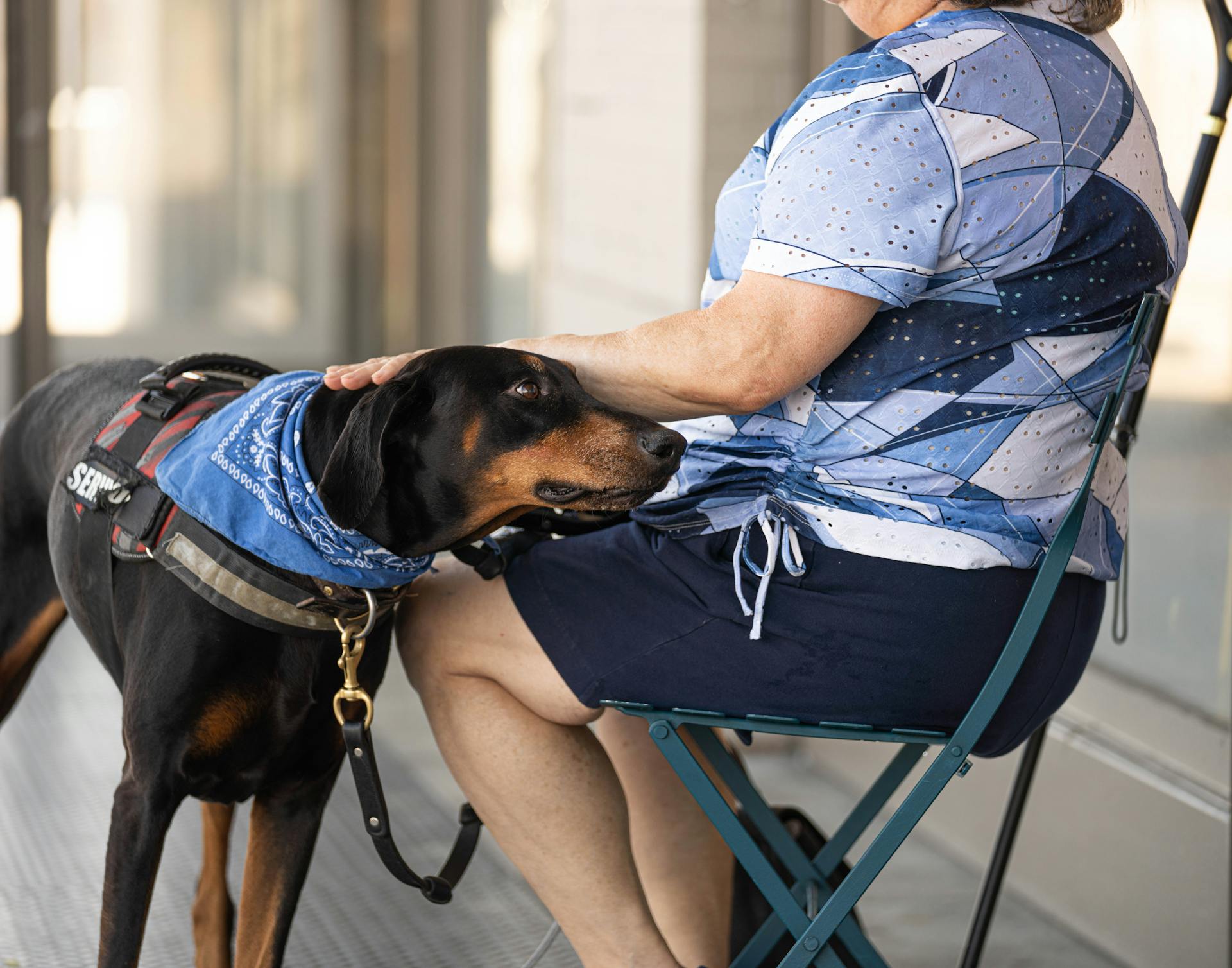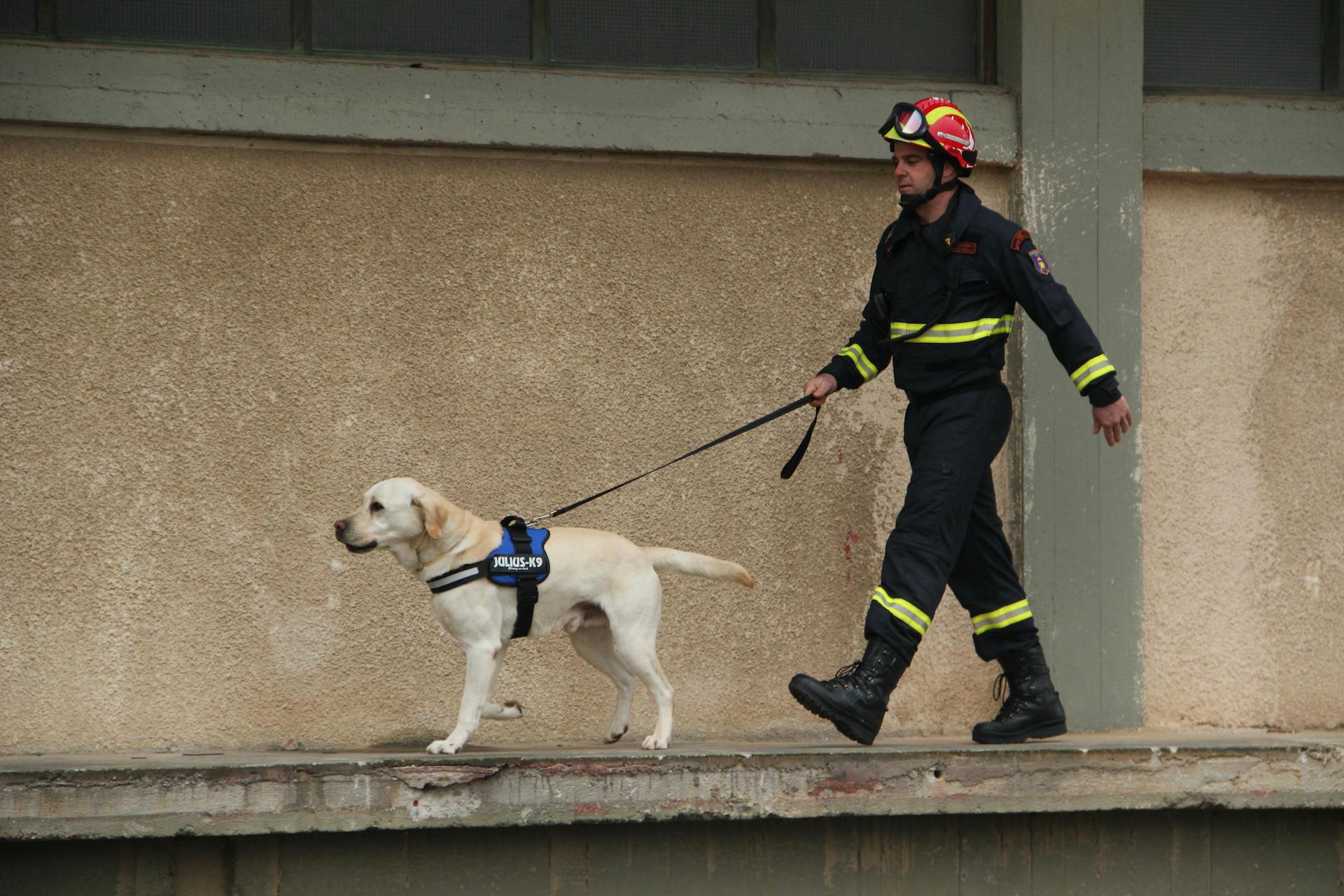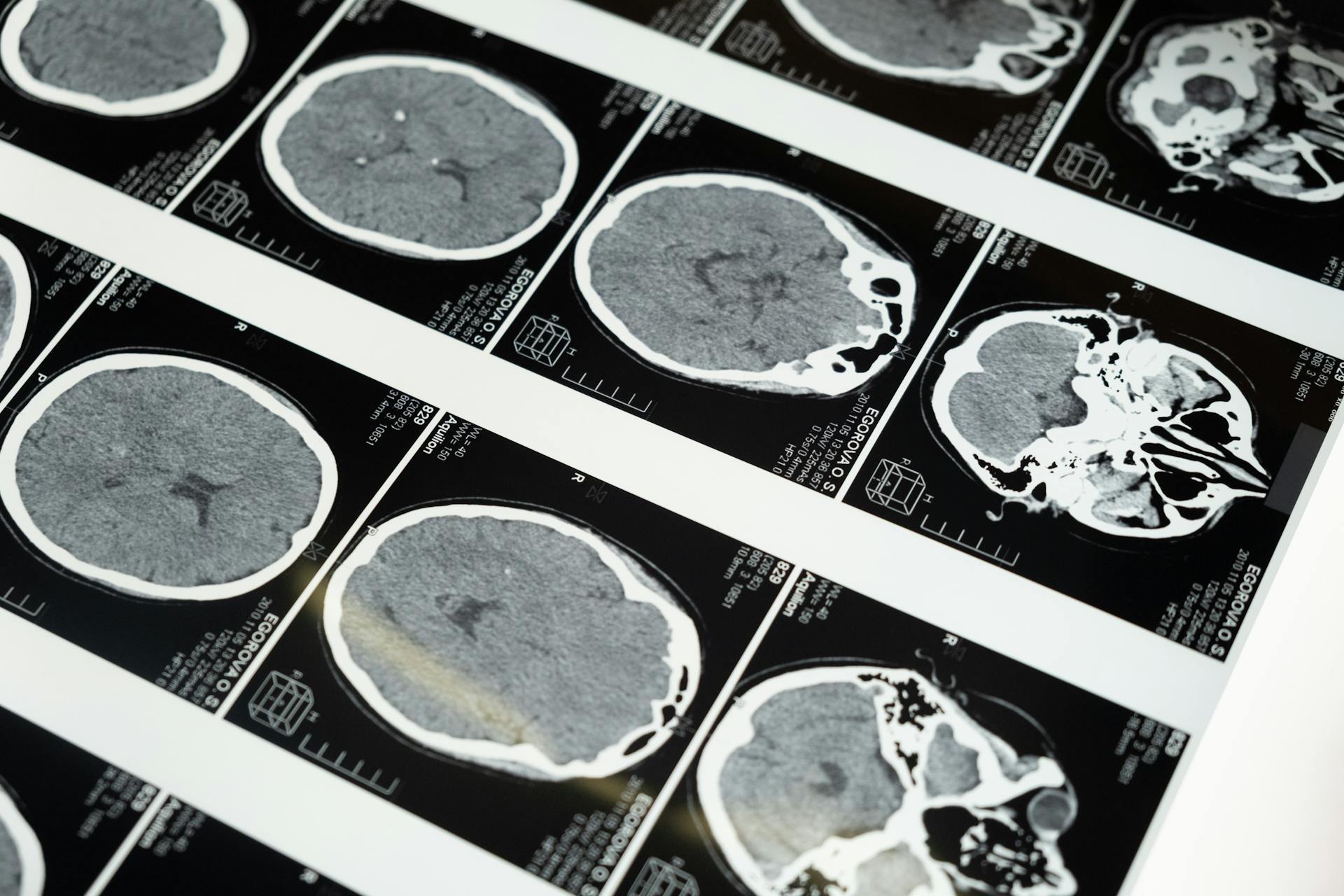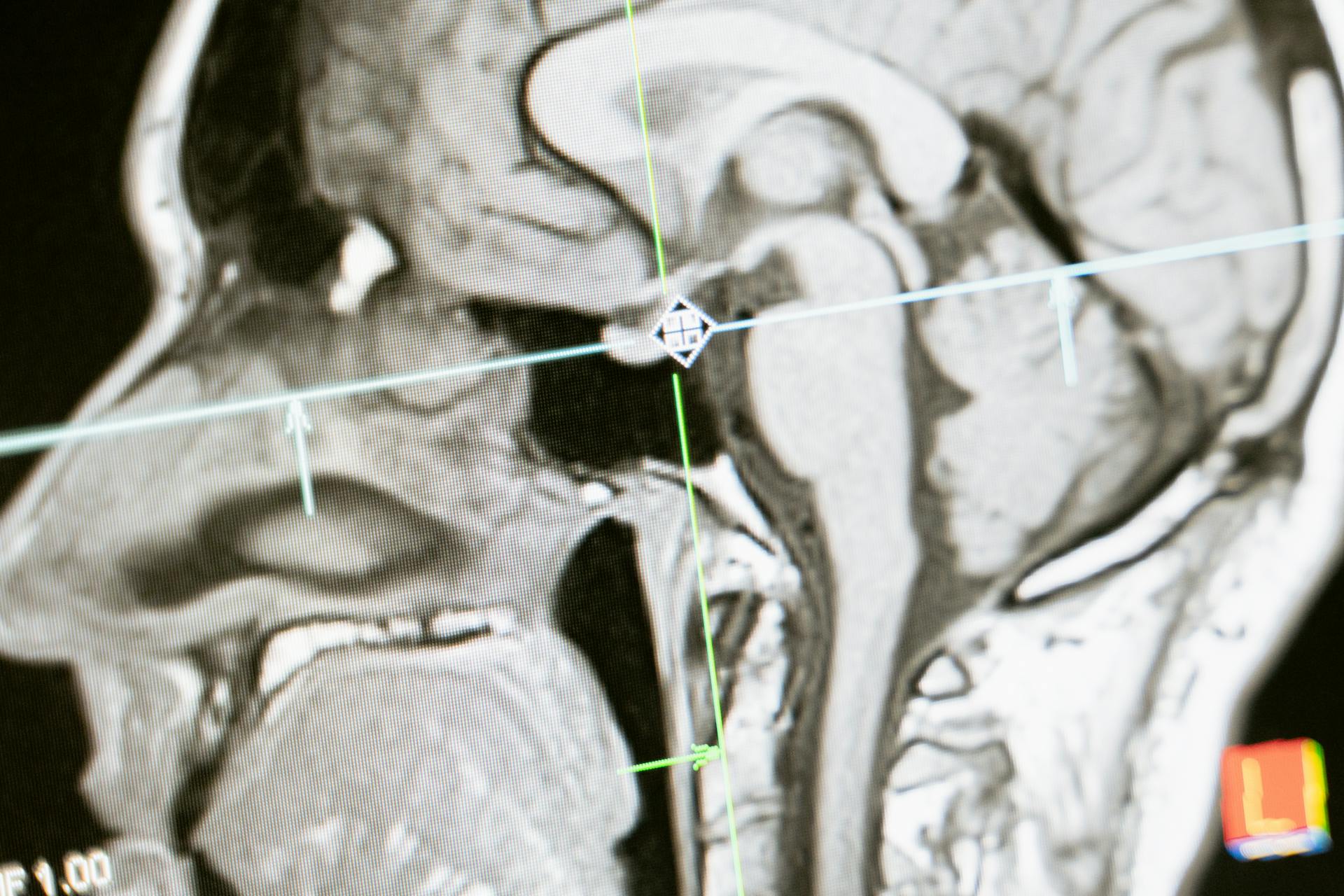
Service dogs for brain injuries have been shown to significantly improve cognitive function and quality of life for individuals with traumatic brain injuries. Research has demonstrated that service dogs can reduce symptoms of anxiety and depression, common comorbidities with TBI.
Studies have found that service dogs can increase social interactions and reduce feelings of isolation, which is especially important for individuals with TBI who may struggle with communication and social skills. This is evident in the case of John, who was paired with a service dog after a car accident left him with severe memory loss.
A service dog's presence can also provide a sense of security and confidence, allowing individuals with TBI to participate in activities they may have previously avoided. For example, Sarah was able to return to her favorite hiking trails with the help of her service dog, who assisted her in navigating complex terrain and remembering important safety protocols.
The bond between a service dog and their handler is a powerful tool in recovery, and can have a lasting impact on an individual's emotional and mental well-being.
Worth a look: Water on the Brain in Dogs
Traumatic Brain Injury (TBI)

Traumatic Brain Injury (TBI) can have a dramatic impact on a survivor's day-to-day life. TBIs vary in intensity and can cause a range of physical symptoms, including difficulty with movement and coordination, loss of feeling or sensation, and visual or hearing impairments.
TBI survivors may also experience mental health difficulties, such as depression, anxiety, and changes in personality. Despite limited or no physical symptoms, they may still experience significant changes in brain chemistry and neurological function, leading to difficulties with memory, confusion, and anxiety in social situations.
A TBI can also lead to difficulties with balance, retrieving dropped items, and preventing injuries related to poor coordination or vision loss. Service dogs can assist with these tasks and provide companionship and motivation to their owners.
Having a service dog can also encourage brain injury recovery by boosting activity levels and improving fine motor skills through tasks like feeding and brushing the dog.
On a similar theme: Types of Service Dogs for Anxiety
Service Dogs for TBI

Service dogs can have a profound impact on the lives of people living with traumatic brain injuries (TBIs). They can provide physical assistance, emotional support, and companionship, helping individuals live independently and confidently.
Having a service dog can encourage brain injury recovery by boosting activity levels and promoting a fuller recovery. Caring for a service dog can improve fine motor skills through tasks like feeding and brushing, and taking the dog for walks can enhance both physical and mental health.
Research has shown that service dogs can reduce the mental burden associated with daily activities and promote wellbeing. In fact, a 2023 study found that 96% of service dog owners reported benefits from their emotional connection with their dog, and 97% believed their community participation improved.
Service dogs can be trained to assist with a range of tasks, including balance support, opening doors and cupboards, and retrieving items. They can also be trained to get help for their owners as needed, providing an added layer of safety and independence.
A unique perspective: Mental Health Service Dogs California

Some of the benefits of having a service dog for TBI include:
- 96% reported benefits of their emotional connection with their dog
- 97% believed their community participation improved
- 96% reported greater physical activity levels
- 98% experienced improved psychological wellbeing
- 97% reported better quality of life
- 78% were able to reduce prescription medication use
- 83% reported their need for paid or unpaid assistance decreased
The presence of a service dog can also influence neurohormone production, including the production of oxytocin, which reduces stress and promotes positive emotions.
Assistance and Support
Service dogs can be a game-changer for individuals with brain injuries, providing assistance and support in various ways.
They can help with physical tasks such as balance support, opening doors and cupboards, retrieving items, and turning lights on or off, which can be challenging for those with mobility issues.
A service dog can also be trained to assist with transfers to a chair, bed, shower, or toilet, and even get help for their owners as needed.
In addition to physical assistance, service dogs can provide emotional support, reducing anxiety and depression.
They can be trained to respond to specific commands, alert their owners with essential cues, and even understand and respond to basic commands.
A fresh viewpoint: Is an Emotional Support Animal an Assistance Animal
This can be especially helpful for individuals with language difficulties.
Service dogs can also be trained to remind people of essential tasks, such as taking medication, and even learn to retrieve pillboxes and deliver them to their owners.
This can be a lifesaver for those with memory problems after a brain injury.
Some service dogs can even be trained to guide their owners home safely if they get lost and can't think clearly.
This can provide survivors and their families with more peace of mind about the individual leaving the house and going out into the community.
Here are some specific tasks that service dogs can be trained to perform:
- Provide balance support
- Assist with opening doors and cupboards
- Retrieve items
- Turn lights on or off
- Assist with transfers to a chair, bed, shower, or toilet
- Get help for their owners as needed
- Remind people of essential tasks, such as taking medication
- Guide their owners home safely if they get lost
Recovery and Healing
Having a service dog can be a game-changer for individuals with brain injuries. Studies have shown that service dogs can greatly improve psychosocial health, including better social, emotional, and work/school functioning.
Service dogs can provide companionship and a sense of purpose, which can boost activity levels and encourage a fuller recovery. Tasks like feeding and brushing service dogs can improve fine motor skills.

Even simply petting a dog for a few minutes increases the production of oxytocin, which reduces stress and promotes positive emotions. This emotional support can be especially beneficial for individuals with brain injuries.
A 2023 study found that 96% of service dog owners reported benefits from their emotional connection with their dog. Service dogs can also promote wellbeing and reduce the mental burden associated with daily activities.
Service dogs can help individuals with brain injuries live independently and confidently. They can provide physical assistance and emotional support, making it easier to participate in daily activities.
Here are some amazing benefits reported by service dog owners:
- 96% reported benefits of their emotional connection with their dog
- 97% believed their community participation improved
- 96% reported greater physical activity levels
- 98% experienced improved psychological wellbeing
- 97% reported better quality of life
- 78% were able to reduce prescription medication use
- 83% reported their need for paid or unpaid assistance decreased
These benefits can be life-changing, and having a service dog can be a great way to improve quality of life while promoting recovery.
Sources
- https://www.sitservicedogs.com/traumatic-brain-injuryneurological
- https://www.ecad1.org/index.php/resources/blog/207-service-dogs-transforming-the-lives-of-people-with-traumatic-brain-injuries
- https://www.flintrehab.com/tbi-service-dog/
- https://hshlawyers.com/blog/traumatic-brain-injuries-the-role-of-service-dogs-as-part-of-a-support-network/
- https://www.clearpathne.org/service-dog-program/
Featured Images: pexels.com


